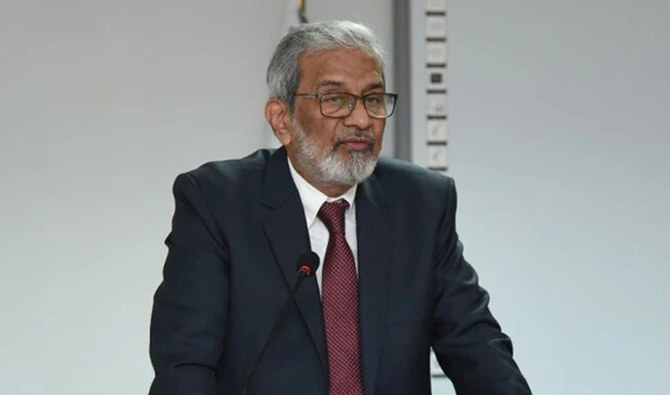KARACHI: The governor of Pakistan’s southern Sindh province, Kamran Khan Tessori on Tuesday announced his decision to appoint former Supreme Court judge, Justice (retd) Maqbool Baqar, to the post of caretaker chief minister of Sindh, as the South Asian country gears up to head into national and provincial elections.
The provincial assembly of Sindh was dissolved on August 11 on outgoing Sindh Chief Minister Murad Ali Shah’s recommendation, a day before the five-year tenure of the provincial assembly was to expire on August 12. The Sindh governor approved Baqar’s name after outgoing Sindh Chief Minister Murad Ali Shah and opposition leader Rana Ansar both unanimously agreed to appoint him to the post.
Baqar, 66, was appointed as the chief justice of the Sindh High Court on September 20, 2013 and was later elevated to the post of judge of the Supreme Court on February 17, 2015. He achieved his Bachelor of Law (LL.B.) from the University of Karachi. Known for his judgments against militants, Baqar survived a suicide bomb attack in 2013 that was claimed by the Pakistani Taliban. The blast targeted his convoy in Pakistan’s southern port city of Karachi that killed nine people, mostly police officers and paramilitary troops.
“[I] have signed the summary to appoint Justice Retired Maqbool Baqar as the caretaker Chief Minister,” Tessori wrote on the platform X, formerly known as Twitter, adding that the name was approved in accordance with Article 224 (1-A) of Pakistan’s constitution.”
The selection process, according to a spokesperson for the Sindh chief minister, included thorough discussions between Shah and the leader of the opposition for three days after which a consensus was reached between the two sides on Baqar’s name.
“Mr. Justice (R) Maqbool Baqar, a former judge of the honorable Supreme Court of Pakistan, is to be appointed as the caretaker Chief Minister of the Sindh government,” a summary from the Chief Minister’s Office read.
The appointment takes place a day after Pakistan’s Caretaker Prime Minister Anwaar-ul-Haq Kakar was sworn in as the country’s eighth caretaker prime minister on August 14, 2023.
General elections in Pakistan are due to be held in November this year, 90 days after the National Assembly’s dissolution. However, the outgoing Sharif government’s decision to approve the results of the 2023 digital census means the election regulator would be required to redraw hundreds of constituencies as per those results.
The Election Commission of Pakistan (ECP) will be able to provide an election date only once the constituencies are redrawn and the vote is thus widely expected to be delayed to as far ahead as February.













